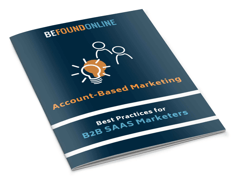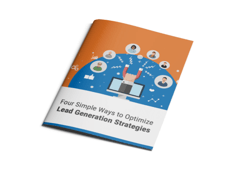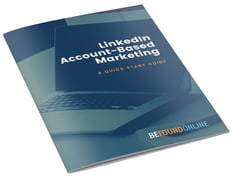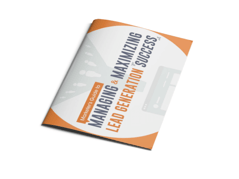
SEO is a powerful marketing channel. With search channels operating at the bottom of the marketing funnel, SEO drives high-intent impressions, clicks, and revenue. As a digital performance agency, we leverage SEO as a core pillar of our digital strategies to drive brand awareness and target a customer’s top buyers to achieve our clients’ strategic business goals.
So let’s just say, we’re drinking the SEO Kool-aid. But as powerful as it is, SEO relies on a measured approach and detailed planning to create success. It requires ongoing effort in the form of content production, keyword analysis, and following industry trends. It is also not a channel that can always “move the needle this quarter” as many SEO programs can take months and years to compound growth.
With that in mind, we suggest every company that wants to implement an SEO program to consider several questions before they invest in an SEO program. The answers to these questions will reveal whether it makes sense to start the project now, or make greater preparations and plans prior to reaching out to an SEO agency.
Is SEO Really the highest priority?
Have you done an audit of your current positioning vs the opportunity? For some clients who are well positioned, we’ve found that an SEO audit can clearly discover SEO opportunities that warrant investment with a significant payoff. Other clients may be way out of the ballpark, requiring years of work to crack “page one”. While we believe this is important, if you’re trying to move the needle this month or this quarter, the investment might work better elsewhere.
Click here to request an SEO Audit from BFO to identify opportunity and potential.
Do you have a realistic view of what “SEO” is in 2016?
There’s plenty of old-school tactics that used to be called SEO. Overuse of keywords in content…buying up sites based on keyword phrases and interlinking them…gray-hat techniques that created links that may not have been completely relevant…the list could go on…
Today, SEO isn’t just about keywords and links. It’s about relevant content and relevant links. Not long ago, Google issued a series manual penalties against several sites for creating what Google called “unnatural links”.
Forget about keyword stuffing, link building, and spinning content. If you want to build content just for SEO, you’ve missed the point. Worse, Google, Bing and Yahoo will ignore you and your money will be wasted.
Successful SEO in 2016 requires an integrated program designed for both your users and yes, the search engines too.
If you’re looking for quick hitters or low hanging fruit, sometimes we can find and fix that stuff when there are pervasive SEO issues (like indexation, canonicalization or a bunk robots file). In some cases when manual penalties are involved we can clean those up too. For the quick fixes, that’s pretty much it.
SEO is a long haul effort. Its success requires that it be integrated with website development and content projects. The best results will come from a coordinated and joint effort between your IT, creative and marketing teams. It’s important that you find the right agency for your business.
What’s our budget?
The days of the SEO RFP are long gone. SEO has gone way beyond services that rest and plug-in the best keywords. In 2016, SEO requires so much more that simply cannot be captured by an RFP.
Only a right-sized SEO program will give you the return on your investment and for that, collaborative scoping and a deep analysis of your target keywords, current positioning and competitive intensity are required to inform a winning SEO strategy.
The “you tell me” what it should cost is a waste of your time and an agency’s time. So is treating SEO as a commodity and trying to find the cheapest vendor (we get all those SEO spam emails too). When it comes to an SEO budget, there really aren’t different “packages”. If you come across cheaper packages, they’re more likely than not a waste of money as they won’t generate the long-term results you want.
To create an SEO budget, you need to know your goals and what you have to spend. With this information, you can make the best of your conversation with an SEO agency.
Ultimately, you need to be realistic. What are you willing to invest in an SEO program? And are you ready to make a long-term commitment to it? Since fresh content plays such an important role, SEO is now an ongoing effort. Your SEO investment will depends on the needs and goals of your organization.
Are we willing to change?
Often an SEO agency will identify aggressive changes that are needed to your website. I’ve seen more than a few instances where the SEO needs required the agency “blow up the site” to change site content, navigation and the look and feel. Wholesale changes may be necessary to achieve results and often times, the burden of those updates falls on your IT team or Web Development firm.
Unfortunately, unlike the Staples “Easy Button” there’s no magic SEO button. And rarely does SEO require only a few tweaks here and there. SEO is work. It requires management, analysis and continued effort to keep the site updated and the content fresh.
Are you prepared for these possibilities? Have you factored in development resources and internal resources to interface with your SEO program?
What challenges might we encounter?
Even if you fired your last agency for screwing up your website and search results with some black hat trickery, Google hasn’t forgotten. When you speak with an SEO agency, be upfront about any issues or missteps with Google Panda or Penguin.
You’ll get a more realistic assessment of the work needed to clean up links or undo overdone work by previous SEOs. Be upfront with potential challenges and you’ll keep costs down as the agency can plan for hiccups and avoid surprises that interrupt project flow.
In assessing potential challenges, you also need to consider the relationship between marketing, IT and your web development team. Are they in-house teams or outsourced? Do they get along? It may seem like a silly question, but communication between these teams is integral to the successful implementation of an SEO program.
If one of these areas of IT, marketing and web development have also been neglected, you will want to communicate that too. Outdated technology or inconsistent branding can impact SEO success as well.
What are our goals?
If you seek immediate sales and want a revenue generating tool, SEO may not be the way to go. Identify your goals to see if an SEO engagement makes for the best use of your funds.
To set realistic goals, start with your current rankings and SEO market share. Don’t expect to go from middle of the pack to first overnight. The need for quality content and offsite SEO takes a little time to develop. Change can come fast, but goals should be made based on a long-term strategy. There’s no such thing as short-term SEO success anymore.
In my experience, the most successful SEO engagements were based on long-term goals and had similar long-term investments built into the plan. This guaranteed consistent, fresh content and allowed for measurement, analysis and honing of search to improve results.
If you think you’re ready to start the SEO conversation, let’s talk. If we’ve caused you to re-think the “I need SEO now” checkbox, that’s OK too. Our team is here to help our clients figure out what channels to invest in and to help you prioritize marketing channels and tactics to drive digital performance.
Want to learn more about SEO best practices? Check out our ebook, “The Marketer’s Guide to Managing & Maximizing SEO Success“.

The BFO Team
Here at BFO, we're always striving to bring you the latest and greatest in digital marketing insights and education. We're not ones to brag, but we've been lucky enough to be featured in all sorts of fancy publications and media outlets, strutting our stuff and showing off our industry expertise.
CATEGORIES
SUBSCRIBE TO OUR BLOG
Stay up to date with the latest industry best practices in digital marketing!




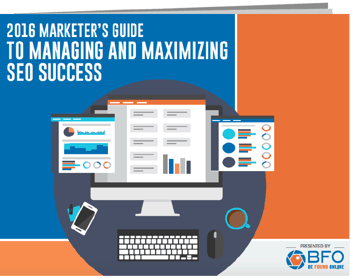


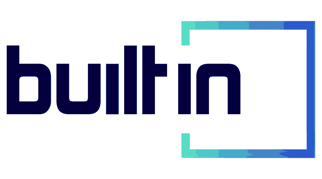







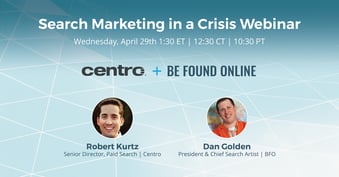

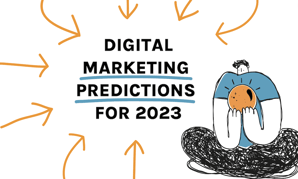
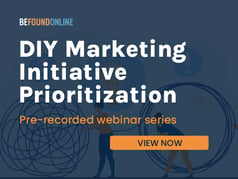
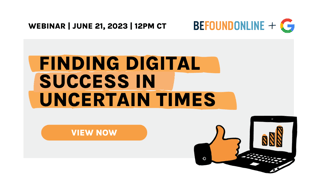



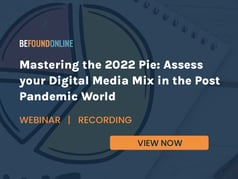
.png?width=339&height=179&name=Webinar%20Banner%20(1).png)

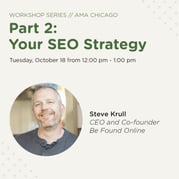
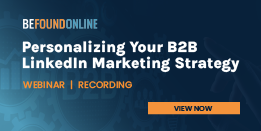
.png?width=339&height=179&name=July%20Webinar%20(Newsletter).png)
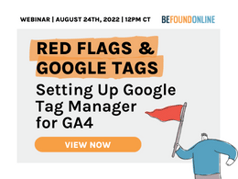
.png?width=339&height=179&name=Webinar%20Banner-April-02%20(1).png)
%20(4).png?width=339&height=179&name=Webinar%20Banner-May-02%20(1)%20(4).png)
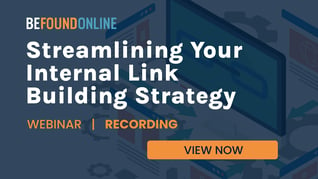
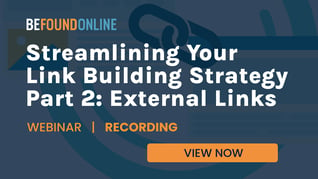

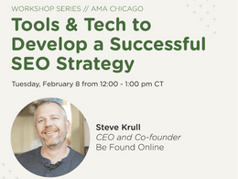
.png?width=339&height=179&name=March%202023%20Webinar%20Ad%20(autoresponder).png)

